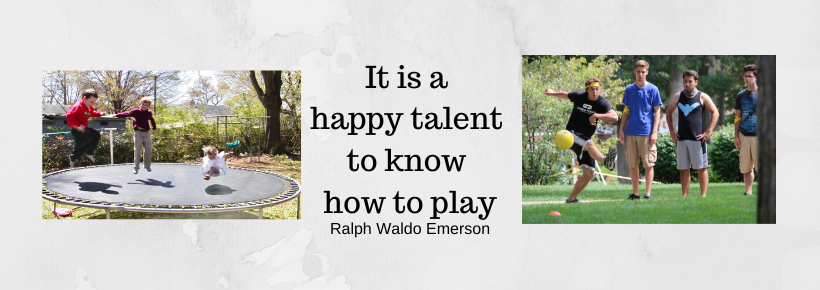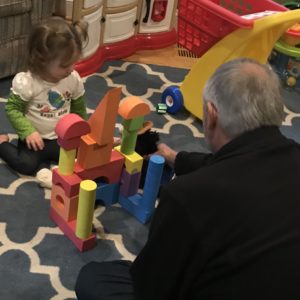
Play Is Essential
written by Deb Crater, MA, LPC
Children need to play. Play is essential to mental health and education. This is a message we are hearing more of in our fast-paced culture. Parents scramble to provide the “best” opportunities for their children. The quest begins early on to find the most effective extracurricular activities, the elite sports programs, quality dance & music lessons, epic vacation experiences, service projects, etc. After all, these things help our children get in to the best schools and provide the greatest chance for success, right? Or not. These actions come with well intended motives and are certainly good things. However, out of balance, it may come at a cost.

The cost
The rise of mental health issues in children and teens can be attributed to an overbooked schedule. This is causing many to step back and ask, at what cost? What is a healthy balance? We want our children to be able to collaborate, negotiate, resolve conflict, advocate for self, have good decision-making skills, become independent, be creative, develop leadership, and increase physical activity, and the list goes on. That’s why we sign them up for all these things. The good news is, all of these things can be accomplished through play! A recent policy report by the American Academy of Pediatrics stresses the need for play and indicates these characteristics are developed through play (Yogman et al., 2018, p142)[1].
Play is for adults too!
What about adults? HelpGuide, a non profit web site dedicated to mental health and wellness, provides insight into the benefits of play for adults as well! Play as adults can benefit “relationships, job, and mood” (Robinson et al., 2018, June).[2] This web site also explains similar benefits as listed above, providing ideas of how to unplug from our electronic laden worlds and hone our skills on and off the job. Turns out, play is essential for adults as well. If we want our children to learn important skills as noted above, perhaps we should enhance our own skills the same way, through play!
References
[1] Yogman M., Garner, A., Hutchinson, J., Hirsh-Pasek, K., Michnick Golinkoff, R., COMMITTEE ON PSYCHOSOCIAL ASPECTS OF CHILD AND FAMILY HEALTH and COUNCIL ON COMMUNICATIONS AND MEDIA (2018). The Power of Play: A Pediatric Role in Enhancing Development in Young Children Pediatrics 2018;142
[1] Robinson, L., Smith, M., M.A., Segal, J., Ph.D., Shubin, J.. (2019, June). The Benefits of Play for Adults. Retrieved September 12, 2019, from https://www.helpguide.org/articles/mental-health/benefits-of-play-for-adults.htm

Deb and her husband Vic have embarked on day road trip adventures to over 35 nature spots across Michigan this past summer. On any given day you might find Deb in the waters off a Michigan beach looking for rocks, just like a little kid, practicing the power of play. Deb is a Licensed Professional Counselor who works with children, adolescents, and adults. She uses a broad scope of techniques with a focus on Play Therapy and trauma therapy using EMDR. This blog is written from her experience, training, and love of Play Therapy.

